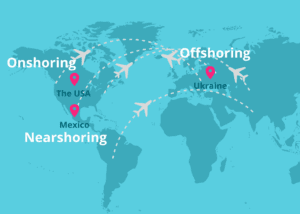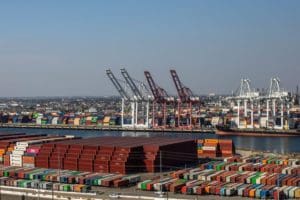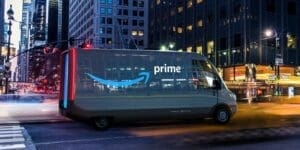 The countdown is officially on for the 2022 World Cup in Qatar. In 9 days, the host country will take on Ecuador in the first match of the group stage. This marks the first time that the World Cup will not be played in its traditional timeframe of June and July. Instead, due to the climate in Qatar, the tournament was pushed out to November and December. The notion of staging the tournament in November is controversial since it will interfere with the regular season schedules of some domestic leagues around the world. This, along with a host of controversies, have led many to believe that awarding Qatar with the World Cup was a blatant mistake. But all of that is in the past, and the group stages are getting ready to kick off. The US Men’s National Team is in Group B with England, Iran, and Wales, and will play its first game on November 21 against Wales. This will be the team’s first World Cup game since 2014, as it failed to qualify in 2018. The team should advance out of the group stage, and if it does, there’s a greater-than-50% chance that it’ll get an extremely beatable foe in the Round of 16 from Group A. So a quarterfinal run is the reasonable ceiling. Now we just have to wait another 10 days. And now on to this week’s logistics news.
The countdown is officially on for the 2022 World Cup in Qatar. In 9 days, the host country will take on Ecuador in the first match of the group stage. This marks the first time that the World Cup will not be played in its traditional timeframe of June and July. Instead, due to the climate in Qatar, the tournament was pushed out to November and December. The notion of staging the tournament in November is controversial since it will interfere with the regular season schedules of some domestic leagues around the world. This, along with a host of controversies, have led many to believe that awarding Qatar with the World Cup was a blatant mistake. But all of that is in the past, and the group stages are getting ready to kick off. The US Men’s National Team is in Group B with England, Iran, and Wales, and will play its first game on November 21 against Wales. This will be the team’s first World Cup game since 2014, as it failed to qualify in 2018. The team should advance out of the group stage, and if it does, there’s a greater-than-50% chance that it’ll get an extremely beatable foe in the Round of 16 from Group A. So a quarterfinal run is the reasonable ceiling. Now we just have to wait another 10 days. And now on to this week’s logistics news.
- Supply chain woes accelerate reshoring, nearshoring trend
- Logistics companies are reversing their hiring binge
- US EPA to set tougher heavy duty emissions rules in 2023
- Union vs. Union dispute stalls West Coast port labor talks
- Rail union approves deal offering hope of avoiding strike
- UPS, Overstock to launch returns pilot program
- Amazon has ‘over a thousand’ Rivian electric vans making deliveries in the US
- Retailers turning to specific-day delivery over speediest shipping
 The impact of the COVID-19 pandemic followed by supply chain disruptions around the world has sparked a resurgence of companies bringing sourcing and manufacturing back to the United States or closer to U.S. shores. While the pandemic continues to be a catalyst, interest in reshoring and nearshoring has been growing over the past several years. Companies are coping with rising costs to source and produce goods in China and other Asian locales. They also have faced tense geopolitical environments, unreliable and expensive global shipping services and supply chain delays exacerbated by port congestion and even inland transportation issues. These factors have encouraged manufacturers to move closer to the source of consumption — the U.S. The trend is borne out in the 2021 State of North America Manufacturing Report produced annually by research and publishing firm Thomasnet.com. The report found that 83% of manufacturers are “likely” or “extremely likely” to reshore by adding North American suppliers, up from 54 percent in March 2020.
The impact of the COVID-19 pandemic followed by supply chain disruptions around the world has sparked a resurgence of companies bringing sourcing and manufacturing back to the United States or closer to U.S. shores. While the pandemic continues to be a catalyst, interest in reshoring and nearshoring has been growing over the past several years. Companies are coping with rising costs to source and produce goods in China and other Asian locales. They also have faced tense geopolitical environments, unreliable and expensive global shipping services and supply chain delays exacerbated by port congestion and even inland transportation issues. These factors have encouraged manufacturers to move closer to the source of consumption — the U.S. The trend is borne out in the 2021 State of North America Manufacturing Report produced annually by research and publishing firm Thomasnet.com. The report found that 83% of manufacturers are “likely” or “extremely likely” to reshore by adding North American suppliers, up from 54 percent in March 2020.
The hiring frenzy in logistics driven by pandemic-fueled shopping appears to be cooling off. Operators of warehouses, trucking fleets and other freight businesses say they are paring their payroll growth as the supply-chain disruptions that led to tens of thousands of new jobs recede. Several freight executives say they expect to reduce staff by attrition, though some suggest layoffs could come as their companies cut costs. Warehousing and storage companies, which added more than 400,000 jobs in two years through the end of 2021, dropped 20,000 jobs from September to October, according to the Bureau of Labor Statistics seasonally-adjusted preliminary monthly employment report released Friday. It was the fourth straight monthly pullback in payrolls and the largest since the sector lost 75,000 jobs in April 2020 as pandemic lockdowns took hold.
 The U.S. Environmental Protection Agency (EPA) said it plans to issue tougher greenhouse gas emissions rules for heavy duty trucks and other larger vehicles through at least the 2030 model year by the end of 2023. Under the EPA’s revised schedule, the agency plans to issue proposed rules in March and final rules by the end of December, a move the agency said will allow it “to put in place ambitious GHG standards for heavy-duty vehicles as soon as possible.” The EPA in March had proposed tighter standards for 17 of the 33 sub-categories of vocational and tractor vehicles, including school buses, transit buses, commercial delivery trucks, and short-haul tractors. The agency said in September that it was reopening the proposed greenhouse gas (GHG) rules after passage in August of the climate and spending Inflation Reduction Act that creates a commercial vehicle credit of up to $40,000, a move that could speed the U.S. shift to electric heavy-duty vehicles.
The U.S. Environmental Protection Agency (EPA) said it plans to issue tougher greenhouse gas emissions rules for heavy duty trucks and other larger vehicles through at least the 2030 model year by the end of 2023. Under the EPA’s revised schedule, the agency plans to issue proposed rules in March and final rules by the end of December, a move the agency said will allow it “to put in place ambitious GHG standards for heavy-duty vehicles as soon as possible.” The EPA in March had proposed tighter standards for 17 of the 33 sub-categories of vocational and tractor vehicles, including school buses, transit buses, commercial delivery trucks, and short-haul tractors. The agency said in September that it was reopening the proposed greenhouse gas (GHG) rules after passage in August of the climate and spending Inflation Reduction Act that creates a commercial vehicle credit of up to $40,000, a move that could speed the U.S. shift to electric heavy-duty vehicles.
 A dispute between two unions over which workers get certain jobs at a cargo-handling terminal at the Port of Seattle is holding up labor talks between West Coast dockworkers and their employers. Shipping industry officials had hoped the talks, which began in May, would have concluded around now. Instead, officials say the discussions have stalled for about three months after dockworkers declined to discuss major contract issues pending resolution of the dispute at Seattle. The Seattle dispute pits the International Longshore and Warehouse Union against the International Association of Machinists and Aerospace Workers. The delay illustrates the extent to which disagreements at one facility can derail talks covering more than 22,000 dockworkers at 29 ports along the primary coast for U.S. trade with Asia.
A dispute between two unions over which workers get certain jobs at a cargo-handling terminal at the Port of Seattle is holding up labor talks between West Coast dockworkers and their employers. Shipping industry officials had hoped the talks, which began in May, would have concluded around now. Instead, officials say the discussions have stalled for about three months after dockworkers declined to discuss major contract issues pending resolution of the dispute at Seattle. The Seattle dispute pits the International Longshore and Warehouse Union against the International Association of Machinists and Aerospace Workers. The delay illustrates the extent to which disagreements at one facility can derail talks covering more than 22,000 dockworkers at 29 ports along the primary coast for U.S. trade with Asia.
 Another one of the 12 railroad unions narrowly approved its deal with the major freight railroads Saturday, offering some hope that the contract dispute might be resolved without a strike even though two other unions rejected their agreements last month. Now that 52% of International Association of Machinists and Aerospace Workers members who voted approved their deal, seven railroad unions have ratified contracts that include 24 percent raises and $5,000 in bonuses, but all 12 have to approve contracts to prevent a strike. Concerns remain about the possibility of an economically devastating strike because the Brotherhood of Maintenance of Way Employees Division and Brotherhood of Railroad Signalmen unions voted down their contracts, and many workers say these deals just don’t address their quality-of life concerns. No strike is imminent because those unions agreed to return to the bargaining table to try to work out a new deal, but those talks have been deadlocked over the unions’ demands for paid sick time and there is a November 19 deadline.
Another one of the 12 railroad unions narrowly approved its deal with the major freight railroads Saturday, offering some hope that the contract dispute might be resolved without a strike even though two other unions rejected their agreements last month. Now that 52% of International Association of Machinists and Aerospace Workers members who voted approved their deal, seven railroad unions have ratified contracts that include 24 percent raises and $5,000 in bonuses, but all 12 have to approve contracts to prevent a strike. Concerns remain about the possibility of an economically devastating strike because the Brotherhood of Maintenance of Way Employees Division and Brotherhood of Railroad Signalmen unions voted down their contracts, and many workers say these deals just don’t address their quality-of life concerns. No strike is imminent because those unions agreed to return to the bargaining table to try to work out a new deal, but those talks have been deadlocked over the unions’ demands for paid sick time and there is a November 19 deadline.
 Overstock.com and UPS are launching a pilot program in Q4 for more convenient customer returns, CEO Jonathan Johnson said on the online furniture retailer’s earnings call last week. Through the pilot, customers can have product returns picked up at home without reboxing the product, according to Johnson. Overstock’s website currently advises customers to ensure their returned item is packaged well and is in a shipping-suitable box. The program with Overstock is one of several pilots UPS is running as part of its recently announced logistics-as-a-service offering, the delivery giant said in an emailed statement. Creating a robust reverse logistics business is one of the five key pillars of the initiative, which aims to build new revenue streams for the company, CEO Carol Tomé said on an earnings call.
Overstock.com and UPS are launching a pilot program in Q4 for more convenient customer returns, CEO Jonathan Johnson said on the online furniture retailer’s earnings call last week. Through the pilot, customers can have product returns picked up at home without reboxing the product, according to Johnson. Overstock’s website currently advises customers to ensure their returned item is packaged well and is in a shipping-suitable box. The program with Overstock is one of several pilots UPS is running as part of its recently announced logistics-as-a-service offering, the delivery giant said in an emailed statement. Creating a robust reverse logistics business is one of the five key pillars of the initiative, which aims to build new revenue streams for the company, CEO Carol Tomé said on an earnings call.
 Amazon’s fleet of Rivian-made electric delivery vans is growing. Since first rolling out earlier this year, the retail giant’s new zero-tailpipe emission vehicles have made more than 5 million deliveries in the US, with its fleet-size exceeding 1,000 EDVs (electric delivery vans). That’s still only a fraction of the company’s overall transportation fleet, which is comprised 30,000 Amazon-branded delivery vehicles and 20,000 branded trailers. But the electric-portion is growing, with Rivian eventually expecting to deliver 100,000 vans to the company.
Amazon’s fleet of Rivian-made electric delivery vans is growing. Since first rolling out earlier this year, the retail giant’s new zero-tailpipe emission vehicles have made more than 5 million deliveries in the US, with its fleet-size exceeding 1,000 EDVs (electric delivery vans). That’s still only a fraction of the company’s overall transportation fleet, which is comprised 30,000 Amazon-branded delivery vehicles and 20,000 branded trailers. But the electric-portion is growing, with Rivian eventually expecting to deliver 100,000 vans to the company.
Retailers this holiday season are focusing on delivering packages to customers on specific dates, rather than competing on speed of delivery. The shift marks an easing in a race for delivery speed in e-commerce in recent years that has pushed goods to shoppers’ homes at an ever-faster pace while narrowing retailers’ profit margins on sales. With inflation-conscious consumers now dialing back their online shopping, many retailers are focused on restraining the high costs of fulfillment and last-mile delivery. Amazon.com Inc. set the pace for competition on speed with its investment in next-day and same-day delivery. In 2019, the e-commerce giant also gave its Prime members the option to pick a specific delivery date. Other retailers and logistics operators are now following suit.
That’s all for this week. Enjoy the weekend and the song of the week, Hayya Hayya (Better Together), the first single from of the multi-song 2022 FIFA World Cup official soundtrack by American singer Trinidad Cardona, Nigerian singer Davido, and Qatari singer AISHA.

















